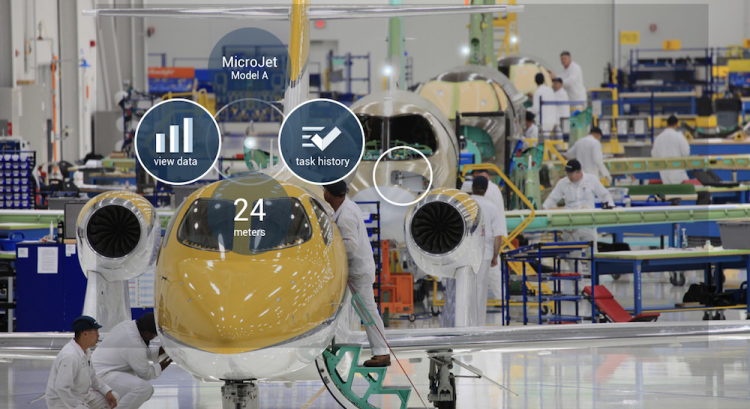When is a battlefield like a factory floor? When you’re using enhanced reality headsets.
A Herndon, Virginia-based company that has focused on military applications for augmented reality has scored $10 million to expand the use of its software for Google Glass and Epson’s Moverio in the business world.
“We look at the military as one of the world’s largest enterprises,” APX Labs CEO and cofounder Brian Ballard told VentureBeat. He pointed out that both military and business applications for enhanced reality headsets require solutions in account management, security, network connectivity, and other common areas.
The biggest differences, he said, are “highly differentiated data sources.” An enterprise use case, for instance, might mean interacting with data from SAP, while the Army might need real-time video feeds from an unmanned aerial vehicle.
Another difference is the market potential. Ballard told us that his company expects “the growth in the commercial world to dwarf the military.” In fact, APX predicts that as many as one-fifth of all workers in the U.S. could benefit from enhanced reality glasses, and that, over time, similar potential will exist worldwide.
The company, which won its first contracts in 2011 after spinning out from Battlefield Telecommunication Systems (BTS), today announced the Series A venture financing, which was led by New Enterprise Associates. This brings the total investment in APX Labs to $15.7 million.
APX will use the funds to develop new applications for more industries. Its software is already being used in automotive manufacturing, energy, healthcare, utilities, and other sectors, although Ballard said he could not share the company names right now.
Skylight is the name of APX’s smart glass platform, a gateway for data, applications, and help for what the company describes as “deskless workers.” Version 2.0 was recently announced, now offering feedback from a remote supervisor or expert and visual beacons that can guide a wearer to a specific spot on, say, the factory floor. The software works with Glass and Moverio, but also could work for some other smart glasses.
Functions also include the ability to conduct see-what-I-see video calls to assist remote expert help, in-field-of-view messaging, hands-free app access, hands-free control of networked equipment, and recognition of faces, bar codes, and QR codes. The company also offers a Software Development Kit and APIs for custom development.
Ballard noted that workers for whom handsfree interaction is important – such as surgeons, assembly line workers, mechanics, and field workers – are the sweet spot of Glass business applications, although others in the field might benefit as well.
“If you’re already working at a desk,” Ballard noted, “you already have access [to data.]”
VentureBeat's mission is to be a digital town square for technical decision-makers to gain knowledge about transformative enterprise technology and transact. Learn More

